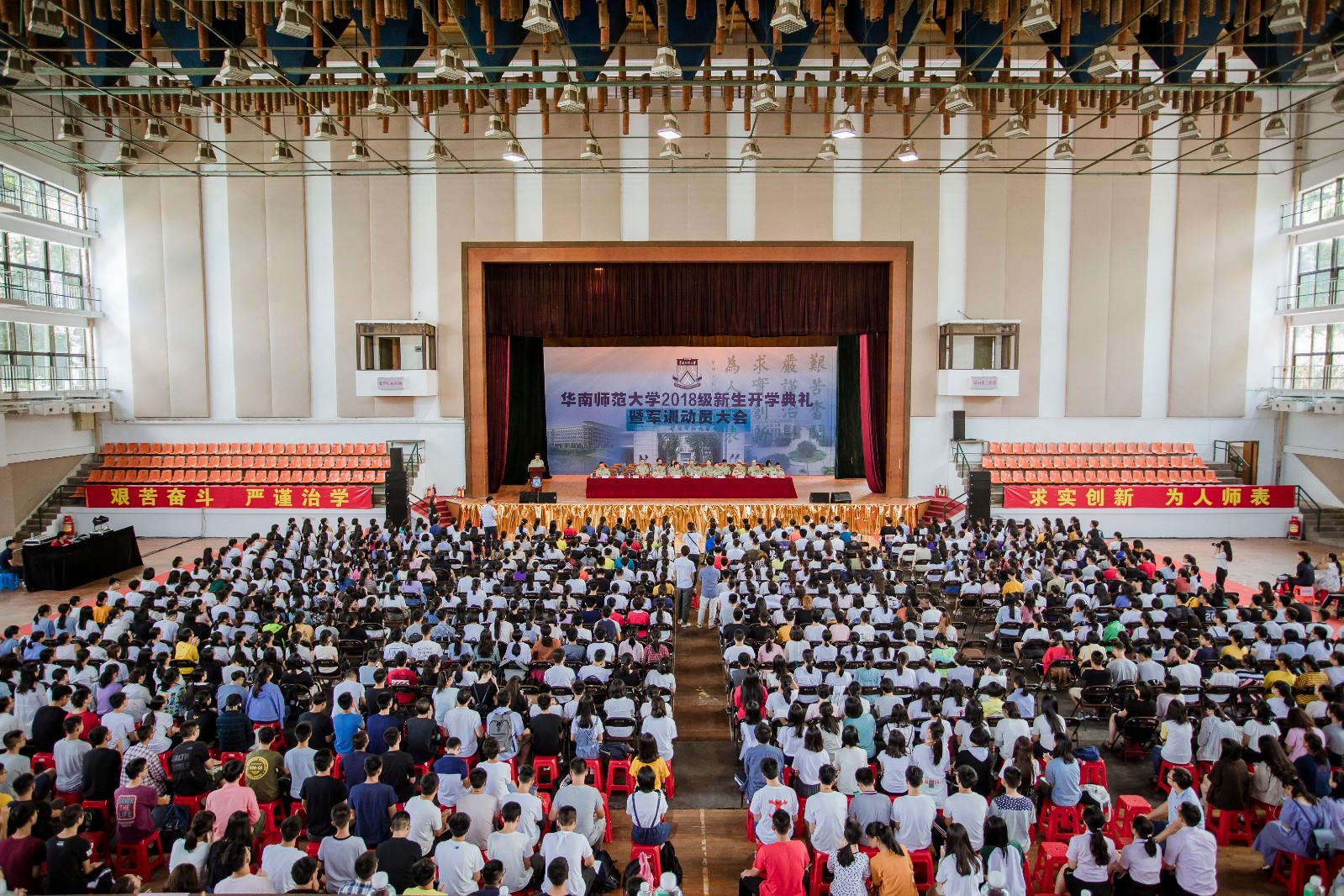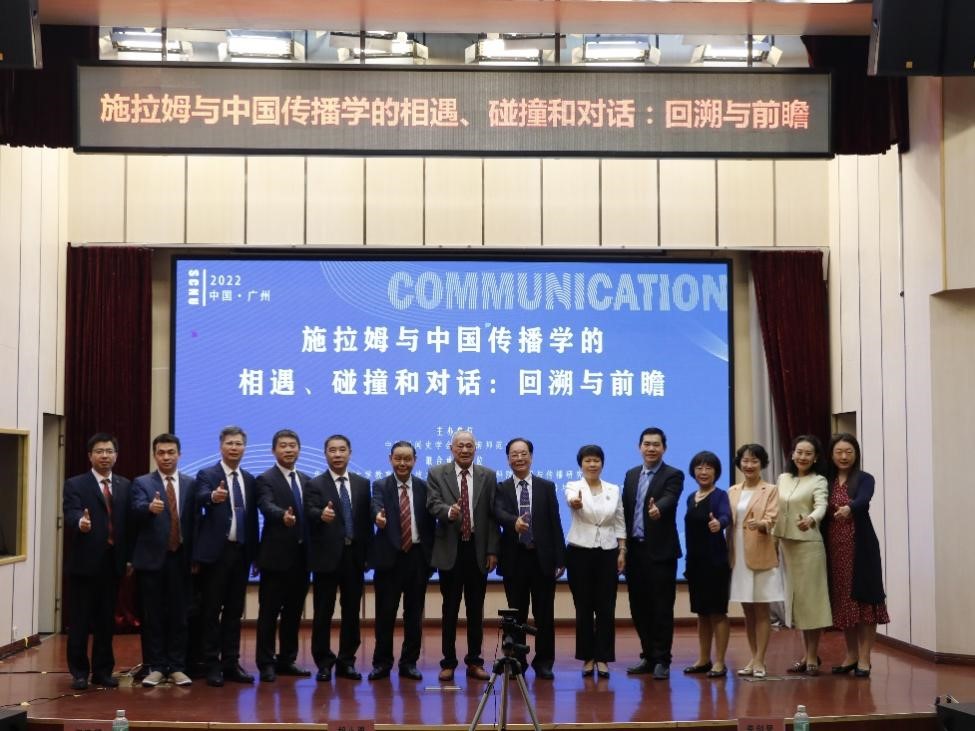
Likes
SCNU held a symposium on Schramm and his influence on communication studies of China from November 12 to 13. This year marks the 40th anniversary of Wilbur Schramm’s first visit to China on a lecture trip. Schramm is considered as the founder of modern communication studies.
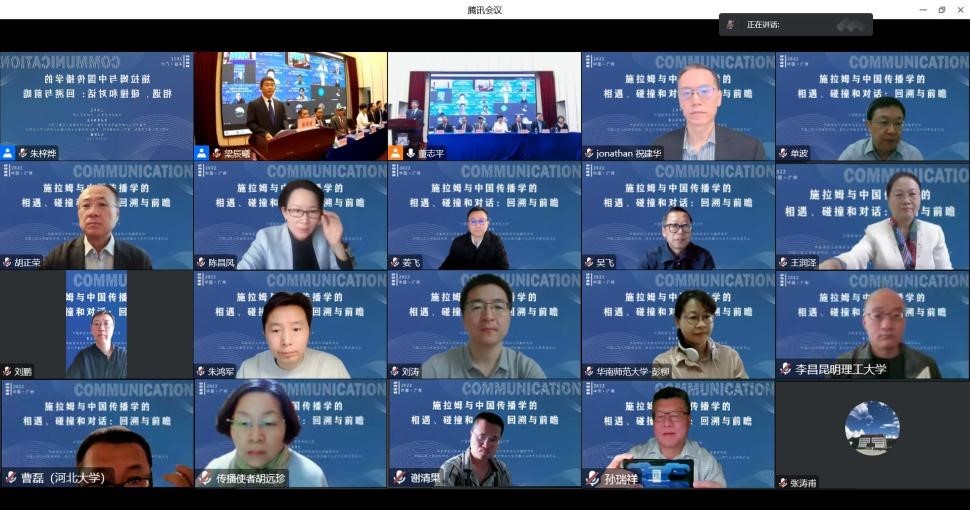
Experts around the nation meet on line.
With the theme “The encounter, collision and dialogue between Schramm and Communication Studies in China”, the meeting highlights the interaction between communication studies in China and western countries while reviewing the course of development of Chinese communication studies. It also aims to promote the development of communication studies as a discipline system, and the academic and discourse system with Chinese characteristics.
Wilbur Schramm, known as “the father of communication studies”, paid his first visit to China in 1982. At that time, SCNU was his first stop, Ma Weihua, vice president of SCNU, said at the opening ceremony of symposium, adding that Schramm’s connection with SCNU originated from the establishment of audio-visual education major of SCNU, which is now the major of educational technology.
"Now, after 40 years, it is of great significance to review Schramm's lecture trip to China and discuss his contribution to the communication theory and practice in contemporary China, so as to sort out the development of China’s communication studies and enhance the influence and the disseminating ability of Chinese culture," she said.
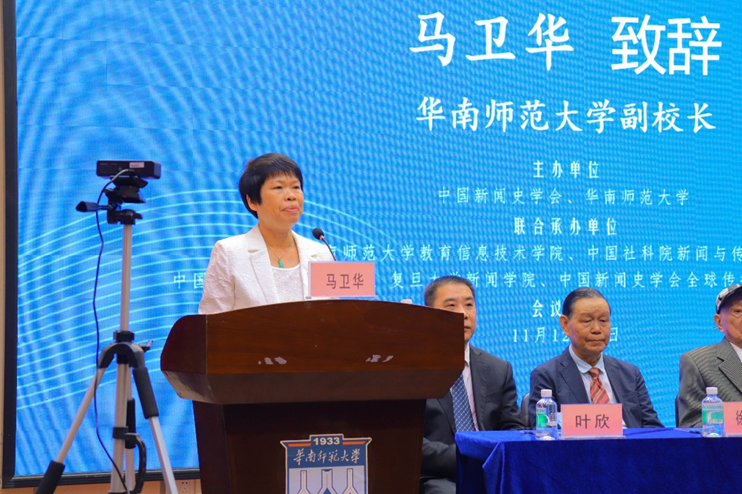
Ma Weihua, vice president of SCNU, delivers a speech at the opening ceremony.
Professor Schramm’s visit to China marks the introduction of communication science to China. It was also an “ice-breaking trip” for China’s communication studies, as it had a far-reaching impact on promoting dialogue between Chinese and western communication theory and developing educational communication theory, said Wang Runze, president of Chinese Association for History of Journalism and Communication.
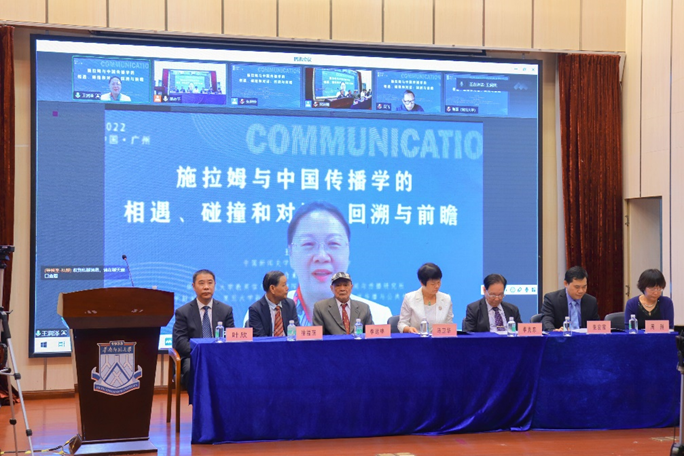
Wang Runze, president of Chinese Association for History of Journalism and Communication, shares her thoughts via the cloud.
In the keynote speeches, scholars from all over the country gathering on line, discussed not only the academic significance of Professor Schramm’s visit to China, but also the development of China’s homegrown knowledge system under the vital transformation and upgrading in domestic communication study.
Professor Liu Hailong of Renmin University of China focused on the details of Professor Schramm’s visit to China and discussed the attitude changes in comments on Professor Schramm at home and abroad. He thought scholars should conduct studies under the global context to dig into the academic influence brought by the lecture trip four decades ago.
Starting from personal research, Jonathan Zhu, chair professor of City University of Hong Kong, summarized the understandings and misunderstandings of Schramm's academic heritage and believed that Professor Schramm is a “master of the discipline” who put forward different conclusions in different contexts and whose academic views clearly put forward that communication is a new discipline.
Based on the background of constructing China’s homegrown knowledge system, Hu Zhengrong, director of the School of Journalism & Communication in Chinese Academy of Social Sciences, said that communication studies of China are at a very crucial stage of transformation and upgrading and put forward the principle that guiding the development of domestic communication studies, which is to inherit and innovate, integrate the homegrown with the foreign, take root in practice and lead the times.
In addition, Professor Zhang Taofu of Fudan University suggested that, under the challenges from a new round of communication technology revolution, the domestic homegrown knowledge system in communication should be built on the dimensions of rediscovery, value and rule.
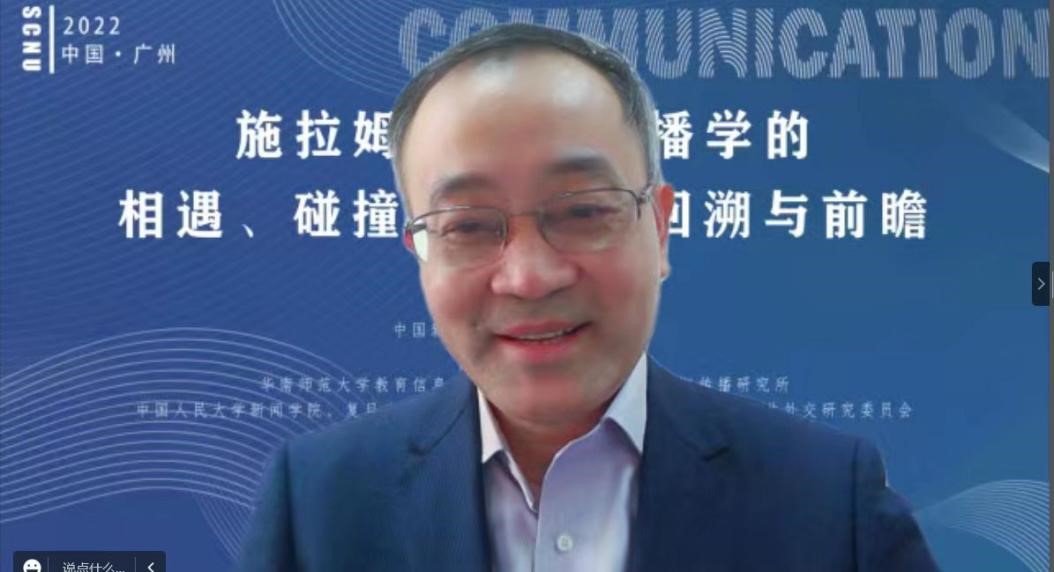
Professor Zhang Taofu proposes an innovative perspective on constructing a Chinese knowledge system in communication.
Other researchers shared their opinions on topics such as the reconstruction of comparative communication, group communication, international communication, digital platform governance, change of communication research, educational communication and so on.

Experts on scene pose for a group photo.
In the editorial forum, editors from five famous domestic journals, viz. Modern Communication, Journalism & Communication, Chinese Journal of Journalism & Communication, Journalism Bimonthly, and Journalism Review, were invited to deliver five keynote reports regarding significance of theoretical research in applied disciplines and innovative research and practice in journalism and communication.
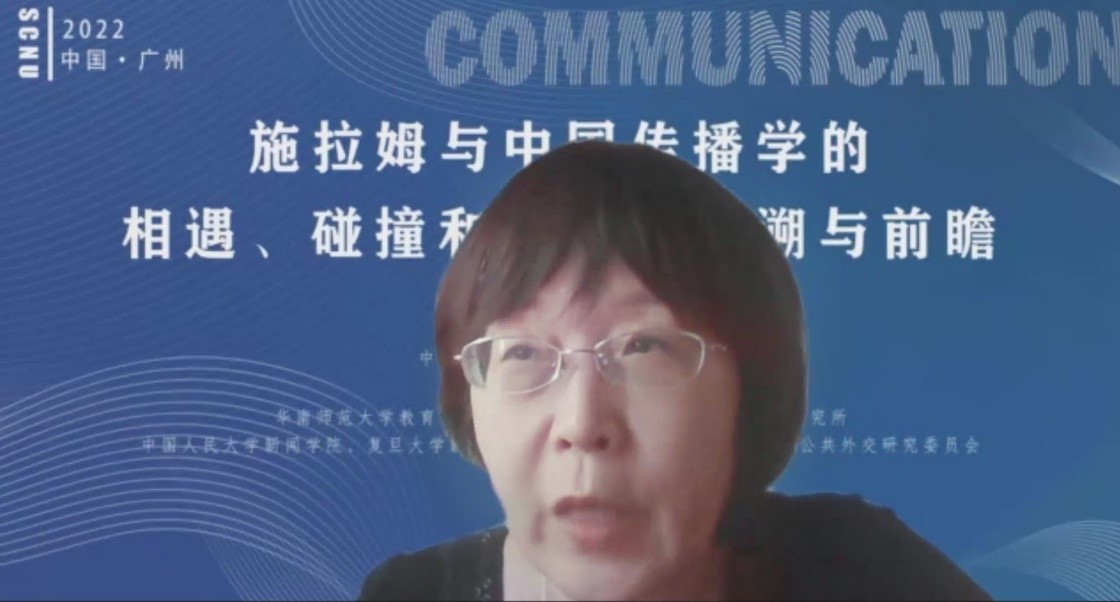
Professor Zhou Xiang of SCNU hosts the editorial forum.
In the sub-forum session, more than 80 teachers and students from 38 universities and institutions reported on their personal research papers according to the four themes of the sub-forums, which are “retrospect and reflection on Chinese and Western communication research”, “domestic practice of communication study and social development”, “production and practice of international communication discourse”, and “technology, ethics and digital practice”.
A session called “Telling history: My face-to-face exchanges with Wilbur Schramm” was also held at the symposium, in which Professor Li Yunlin and Professor Li Kedong of South China Normal University and Professor Sun Ruixiang of Tianjin Normal University, shared their stories of listening to the lectures of Professor Schramm 40 years ago in the form of a video.
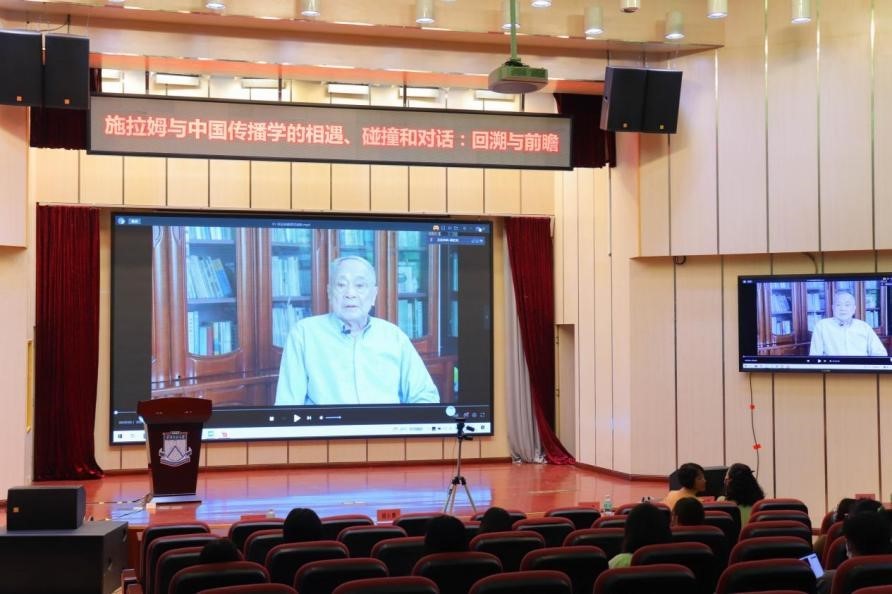
Professor of SCNU Li Yunlin talks about the reasons why SCNU was chosen as Professor Schramm’s first stop in China.
Organized by South China Normal University and the Chinese Association for History of Journalism and Communication, the meeting was held at the School of Information Technology in Education at SCNU and attended by over 700 experts, scholars and student participants around the nation on line.
More information about Professor Schramm’s visit to SCNU
Wilbur Schramm is considered a founder of the field of modern communication studies. In 1948 he created the first graduate program in mass communication at the University of Illinois, but he also began to develop the discipline with his many early books devoted to communication. He is a key figure in the history of the field that has become global in the 21st century.
On April 21, 1982, at the invitation of the Department of Education of Guangdong Province, Professor Schramm introduced modern communication and media education at a national seminar held by SCNU. His reports were then compiled and published as a book entitled Media, Education and Modernization, which is considered to be the first introduction of communication theory in the Chinese mainland.
Source from SCNU News Center, the School of Information Technology in Education
Translated by Chen Menghan, Li Jun, Long Yuchen
Proofread by Edwin Baak
Edited by Li Jianru
What to read next:


